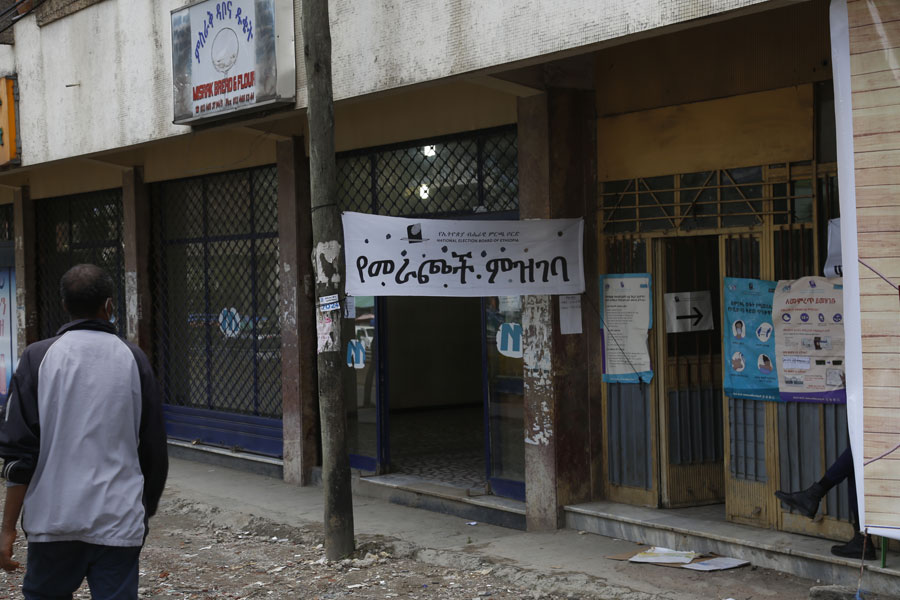
Radar | Aug 03,2019
Nov 23 , 2024
By Mekonnen Solomon
The floriculture industry has become the second-largest export earner after coffee, generating nearly half a billion dollars and employing tens of thousands. Yet despite its economic contributions, the industry remains clouded by scepticism and mired in political smearing for almost two decades.
The industry took root in the early 1980s when state-owned farms began producing and exporting flowers to Europe. It flourished in the early 2000s, especially after 2003 when an influx of foreign firms sparked a surge in exports. Today, flower farms cover about 1,600hct, generating 467 million dollars in export earnings and providing 60,000 people with jobs. Undoubtedly, it has become a force in the economy to be reckoned with.
However, the smear it was subjected to during the 2005 hotly contested elections remains to cast a long shadow over the industry. During the heated campaign, leaders of some opposition parties accused the incumbent party at the time of allowing foreign flower companies to exploit Ethiopia's land and harm the environment. They alleged that these companies were fleeing damaging reputations in their home countries and that floriculture was inconsistent with national priorities.
The negative perceptions weren't based on facts or direct experience. They were a product of political hit work at swaying public opinion. The narrative took hold not only among ordinary citizens and the authorities but also among academics and professionals across various sectors. Many became reluctant to acknowledge the positive aspects of the flower business despite its discernible benefits to the economy.
Social scientists argue that bias could be one reason unfavourable news proliferates. People naturally focus more on potential threats or adverse developments, which historically helped humans survive. In the modern context, bad news is more likely to be shared and spread quickly. Media outlets often exacerbate this tendency. Negative stories attract more viewers and engagement, creating a cycle where such news is prominently featured and widely disseminated.
Social media platforms' algorithms, which favour content that elicits strong reactions, further amplify the spread of hapless narratives.
The impact on Ethiopia's floriculture industry has been consequential. Unverified claims and misinformation have affected the industry's reputation, potentially slowing investment and growth. Companies have had to deal with public scepticism while trying to expand operations and implement sustainable practices. According to industry operators, overcoming negative public perceptions remains challenging despite their investments in environmental safeguards and community programs.
Many flower farms have adopted stringent environmental regulations and close monitoring systems. Some have diversified their production; land once used exclusively for flowers now cultivates strawberries for export to Europe and the Middle East. The sector is evolving and contributing in more ways than one.
Ironically, the negative image persists. Unrealistic or false stories can stir emotions and alter perceptions long after they have been debunked. The internet era has both complicated and offered solutions to this issue. While misinformation can spread rapidly online, the same platforms provide opportunities to share accurate information and positive developments.
Experts emphasise the importance of distinguishing facts from falsehood. Acknowledging that not all aspects of the floriculture industry are flawless, stakeholders advocate for realistic assessments based on research and evidence. No industry is without its problems; informed discussions allow us to address issues constructively rather than being swayed by unfounded claims. With the potential to effect positive change at both the sectoral and societal levels, accurate information should empower the industry to make better decisions.
Many in the industry are optimistic that they can flourish economically and win over public trust with transparency and engagement. The fields of roses, carnations, and other blooms could continue to grow, destined for global markets because the floriculture industry represents more than an export commodity for the thousands of workers employed and the communities supported. It is a pathway to growth.
PUBLISHED ON
Nov 23,2024 [ VOL
25 , NO
1282]


Radar | Aug 03,2019

Exclusive Interviews | Apr 19,2025

Commentaries | Feb 03,2024

Radar | May 14,2022

Agenda | May 08,2021

My Opinion | 131974 Views | Aug 14,2021

My Opinion | 128363 Views | Aug 21,2021

My Opinion | 126301 Views | Sep 10,2021

My Opinion | 123917 Views | Aug 07,2021

Dec 22 , 2024 . By TIZITA SHEWAFERAW
Charged with transforming colossal state-owned enterprises into modern and competitiv...

Aug 18 , 2024 . By AKSAH ITALO
Although predictable Yonas Zerihun's job in the ride-hailing service is not immune to...

Jul 28 , 2024 . By TIZITA SHEWAFERAW
Unhabitual, perhaps too many, Samuel Gebreyohannes, 38, used to occasionally enjoy a couple of beers at breakfast. However, he recently swit...

Jul 13 , 2024 . By AKSAH ITALO
Investors who rely on tractors, trucks, and field vehicles for commuting, transporting commodities, and f...

Jul 5 , 2025
Six years ago, Ethiopia was the darling of international liberal commentators. A year...

Jun 28 , 2025
Meseret Damtie, the assertive auditor general, has never been shy about naming names...

Jun 21 , 2025
A well-worn adage says, “Budget is not destiny, but it is direction.” Examining t...

Jun 14 , 2025
Yet again, the Horn of Africa is bracing for trouble. A region already frayed by wars...

Jul 6 , 2025 . By BEZAWIT HULUAGER
The federal legislature gave Prime Minister Abiy Ahmed (PhD) what he wanted: a 1.9 tr...

Jul 6 , 2025 . By YITBAREK GETACHEW
In a city rising skyward at breakneck speed, a reckoning has arrived. Authorities in...

Jul 6 , 2025 . By NAHOM AYELE
A landmark directive from the Ministry of Finance signals a paradigm shift in the cou...

Jul 6 , 2025 . By NAHOM AYELE
Awash Bank has announced plans to establish a dedicated investment banking subsidiary...